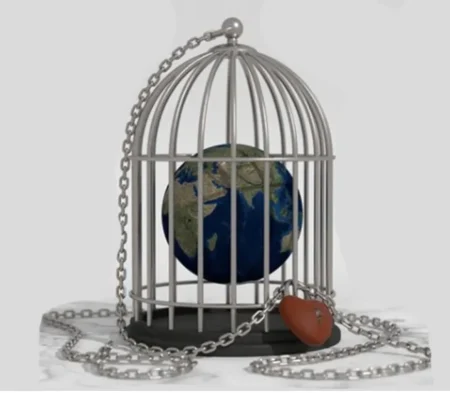by Cheryl Lacey, ©2023

(May 22, 2023) — Personal freedom!
It’s one’s right to act, speak, or think as one wants. It’s a fundamental principle in many societies – past, present and, presumably, future.
Or is it compromised to some extent by the personal freedom of others?
Is it fair to suggest that one’s power over self, or right to act, speak or think as one wants, must come with boundaries? If so, what are they, and from where do they come?
It’s impossible to expect, demand or fulfil one’s personal freedom without acknowledging the other side of the scale – personal responsibility.
All choices have consequences.
And our choices rarely have consequences whose effects are limited to ourselves. For individuals to succeed, families to thrive, and society to be harmonious, most of us realise that to enjoy personal freedom, we must accept personal responsibility.
What are our freedoms, and where do our responsibilities come from?
1. The spiritual sphere, or moral law
Faith, religion, spiritual loyalty, and freedom have existed for centuries. However, they are rapidly moving from severe decline to the threat of extinction.
When Australia – a representative democracy – held its first census in 1911 for its 4.5 million residents, 357 religious categories were acknowledged. Just over a hundred years later, in the 2016 census, the categories of significant influence were Christianity (52%), Islam (2.6%) and Buddhism (2.4%).
30% of Australian citizens reported that they had no religion.
Is this the same as saying 30% of Australia’s population has no moral principles? Or could it be said that those principles’ origins are unknown or of no worth? Could the same be said for other representative democracies?
And what of the census today, tomorrow or 100 years from now…?
2. The physical sphere, or natural science
The natural environment is the genesis of all life. Our existence results from two fundamental, unique powers of equal importance yet vastly different: mother earth and father sky.
The giving of life is not achieved with two eggs; neither is it achieved with two sperm. Our very existence relies on egg and sperm – man and woman.
It is this that makes us all fundamentally equal.
How do we determine where to exercise our choice and responsibility to intervene in nature, and when must we respect nature’s right to protect and endure?
3. The political sphere, or civil society
Society survives because there is an overarching set of principles or laws by which everyone abides. Its members must live by the agreed rules of the game of life. Must responsibility be regarded as being of equal importance as personal freedom?
How is resolution to be achieved when one’s own freedom is affected by that of others? How does the law determine the outcome when conflict exists between one freedom and another?
What is an individual in society to do?
4. The economic sphere, or the exchange of benefits in business and personal life
To exchange is to give to another that which the other does not have, with the complete understanding that you will receive that which you do not have.
To exchange is to honour differences and acknowledge what we are capable of and those we are not. Is receiving without giving a rejection of personal responsibility?
Personal freedom!
It’s about the right to act, speak, or think as one chooses. So too, is personal responsibility.
What is your view of responsibility and freedom? Are you guided by religious, physical, political or economic principles?
How far are you prepared to take personal responsibility for personal freedom?
More importantly, in whom or what do you have complete faith?
Or trust to be responsible for you when your personal freedom has gone?

